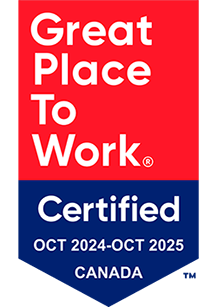Castable Urethane ELASTOMERS are materials which can be stretched and will recover instantaneously on release. They are thermosetting, as are natural and synthetic rubbers. In simple terms, an Elastomer is a material which can be stretched at room temperature to twice its own length, held for five minutes, and upon release, will return to within 10% of its original length over a period of time.
Once cured these materials are not re-formable and can not be liquefied by the application of heat, like thermoplastics.
The main significant properties of Castable Elastomers
There are basically two types of Castable Urethane Elastomers. They are based on either POLYETHERS and/or POLYESTERS. Both Polyether and Polyester based elastomers have excellent physical properties, including abrasion resistance, load bearing characteristics and many other useful properties like tensile strength and tear resistance. These are tough durable materials that offer unique advantages over other materials. The cured properties of these products bridge the gap between rubber, plastics and and those available using metals. The properties include outstanding abrasion, tear and flex resistance, good tensile strength and excellent impact resistance. These products excel in application where severe wear is a problem and will withstand pounding, abrasion, cutting and general abuse only to come back for more. Indeed, there are many applications where the parts will never wear out.
Since these Urethanes are processed in liquid form, the required moulding pressures are low, therefore the tooling does not have to be extremely strong, heavy or expensive. Moulds can be manufactured from variety of materials like steel, aluminum, wood, urethane or epoxy. With proper techniques, moulds can be made using an original part as the model. There is virtually no limit to the size of the part that can be cast. As with other forms of Urethanes, the Castable liquids are supplied as both Polyether and Polyester based systems. Polyester Urethanes are excellent for printing applications where organic solvents are present. They are excellent in both dry and moist environments.
Physical Properties
One of the important advantages of Cast Urethanes is the extremely wide hardness range within which parts can be moulded. The typical range is from a low hardness of 5-10 Shore "A" which is softer than gum eraser to about 85 on the "D" scale which is perhaps harder than a bowling ball.
The next most visible property is probably the wide range of available resilience (bounce). Urethanes can be formulated to a low of 10% rebound (Bayshore) to a very lively 65%. The most important characteristics are physical strength, resistance to abrasion and tear resistance.
Abrasion resistance
Urethane Elastomers offer outstanding durability when compared with rubber, plastics or even metal. In many applications the unusual combination of properties has made it possible to design and fabricate products from Urethane Elastomers using less material than has been possible with other elastomers.
Typical applications requiring Abrasion Resistance
|
|
|
Compressive properties
Cast Urethanes have greater load bearing capability than do conventional elastomers of equal hardness. As the hardness is increased, properties such as tensile strength, tear strength, compressive strength and tensile modulus are also increased.
High load-bearing capacity plus the unusual combination of hardness, resilience, solvent and oil resistance, in addition to abrasion resistance have been decisive factors in specifying these products for rolls and rollers.
Typical applications requiring compressive strength
|
|
|
Mechanical properties
Great toughness combined with the many other outstanding properties associated with the high hardness Urethanes, leads to many unusual applications. Easily fabricated and machined gears are now being made from Castable Elastomers. Not only are they less costly to produce, they also provide smooth, quiet operation with minimum of wear and absolutely no corrosion problems.
Typical applications requiring mechanical strength
|
|
|
Electrical properties
Cast Urethanes have very good insulating properties and are used in many potting and encapsulating applications.
Moisture resistance
Urethanes are very resistant to the swelling and deterioration caused by moisture and have excellent long term stability in water up to 120ºF. Due to their nature however continuous use in hot water over 185ºF is not recommended.
Moisture absorption is normally very low, in the range of .3 to 2% by weight and the increase in volume (swell) is negligible. For example, Castable Urethanes can operate at close tolerance in Water lubricated bearings without fear of seizure.
Typical applications requiring moisture resistance
|
|
|
Mould Mildew and Fungus resistance
Polyether Polyurethanes do not support fungus growth and are highly resistant to such attack.
In summation
Polyurethane elastomers are most suited to applications where durability, flexibility, elasticity and abrasion resistance are prime requirements. They are less exothermic (heat generating) during the reaction than other types of materials and as a result suited to large mass castings.
Acknowledgement
We are thankful to the "CANADIAN URETHANE MANUFACTURING ASSOCIATION" for the valuable information provided to us for this article.









